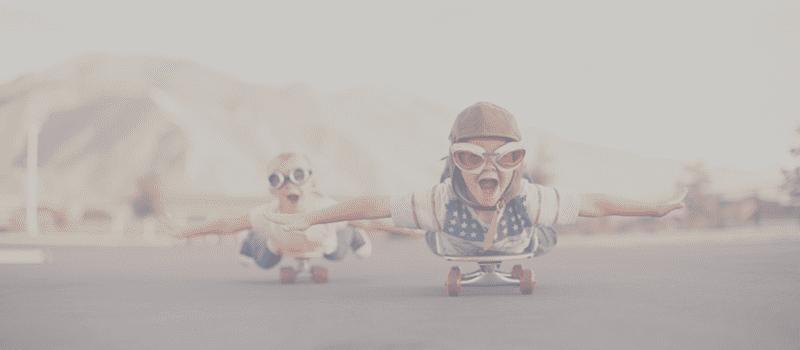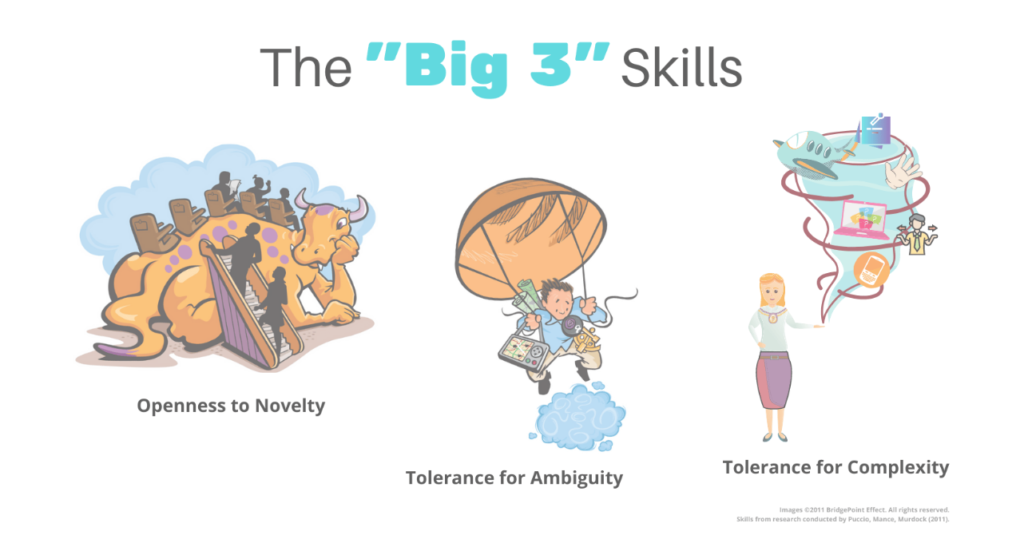How to Be An Innovator
Anyone can be an innovator, and everyone can improve their efforts by developing specific skills and keeping open to opportunities for innovation.
The Misconception
A common misconception about innovation is that it’s all about technology; it’s much more than that. If your job doesn’t have you occupied with developing or implementing the latest and greatest in bleeding-edge technology—or if you’re in an operational position and want to contribute to innovation, here’s how to be an innovator.

How to be an Innovator: Four Steps to take Now
There are many ways to be an innovator. In addition to generating ideas, you could be involved in their development and implementation. Or you could be involved in finding opportunities or problems that need innovation.
Innovation spans doing something new or working to make something better and can be applied to strategies, capabilities, products, services or processes. Regardless of your focus, the outcome should be something that contributes some economic or social value.
Anyone can be an innovator, and everyone can improve their efforts by developing specific skills and keeping open to opportunities for innovation.
To help you get started, I’m suggesting four actions that are entirely within your control and will support your efforts to be an innovator at work and in your personal life. These actions are to:
- Connect to your creativity
- Develop your curiosity and observational skills
- Develop openness for novelty, and tolerance for ambiguity and complexity
- Develop your innovation skills
We’ll explore these actions in the following paragraphs.
1Connect to Your Creativity
Creativity fuels innovation. As individuals, we need to bring our creativity to work—it allows us to use our imagination to connect to new possibilities. Creativity drives creative thinking; without creative thinking, we can’t drive innovation.
Here’s the sad thing about creativity: when asked, most people don’t think they are creative – they think of creativity as something artists do. What they don’t realize is that creativity is about the attitudes we have, the beliefs we hold, and the ways we think.
For me, creativity is an attitude that transcends paradigms and beliefs. It’s a soul-level yearning to fulfill a purpose, uniquely contribute, and leave a mark.
Given these definitions of creativity, it’s easy to see that, in reality, all people are creative. And, regardless of our level of ability, creativity can be enhanced – it is teachable and improves with practice.
Here are a couple of ways to connect to your creativity.
Reframe what it means to be creative. Exciting research by G.A. Davis (1986) summarized the personality traits of creative people. Here’s what he found:
Creative people are curious, independent, open-minded, perceptive, risk-taking, energetic, dynamic, original, persevering, self-aware, experimenting, flexible, playful, questioning and sensitive.
I am confident you recognize yourself in many, or even all, of these characteristics.
Learn more about creativity:
- Check out our article on Reading for Creativity for references to some great books that can help you connect to your creativity.
- TED Talks has a great stream of videos related to creativity. Here’s one of my favourites: 6 TED Talks that will Boost your Creativity
- Develop your skills through one of our Creativity and Innovation training programs.
2Develop Your Curiosity and Observation Skills
New research by Harvard University Professor Francesca Gino builds the Business Case for Curiosity. Her research highlighted important insights about curiosity and its relationship to innovation.
Cultivating curiosity helps us adapt to uncertain market conditions and external pressures. We’re living in a VUCA world that’s volatile, uncertain, complex and ambiguous. When we use curiosity to approach challenges, we view tough situations more creatively, find creative solutions, and think more deeply and rationally about decisions.
On the job, this translates into fewer decision-making errors, more innovation and positive changes in both creative and non-creative jobs, reduced group conflict, more open communication and better team performance. We use observation skills to gain information and tap our imaginations by observing someone or something.
Observation skills allow us to go beyond the obvious. Honed well, they will enable you to fully engage with your external environment by noticing what you see, hear, touch, smell and taste, as well as engaging with your internal environment by noticing how you feel about a situation and what your intuition tells you.
Here are some ways you can develop observational skills.
Research conducted by Puccio, Mance, and Murdock (2011) at the International Centre for Studies in Creativity identified mindfulness, sensitivity to environment and sensing gaps as critical, creative problem-solving skills. These skills support your ability to observe what’s going on around you.
Mindfulness is attending to thoughts, feelings and sensations relative to the present situation. Sensitivity to environment is about awareness of your physical and psychological surroundings. Sensing gaps is about becoming consciously aware of discrepancies between what currently exists and what is desired or required.
The MIT Office of Digital Learning has developed an online resource: Improving Observation Skills.
3Master the “Big 3” Emotional Skills
Openness to novelty is being able to entertain ideas that initially seem outlandish or risky. It’s about deferring judgment, staying open to possibilities and remembering that innovation involves risk-taking because you’re changing things.

Tolerance for ambiguity is having the ability to deal with uncertainty and avoid leaping to conclusions. Tolerance for complexity is staying open and persevering without being overwhelmed by large amounts of information, interrelated and complex issues, and competing priorities.
Tolerance for complexity is having the ability to stay open and persevere without being overwhelmed by large amounts of information, interrelated and complex issues, and competing priorities.
4Develop your innovation skills
The Conference Board of Canada sponsored research with industry and government to isolate the unique contribution that an individual’s skills, attitudes and behaviours make to an organization’s innovation performance.
They found that innovation skills can be grouped into four skill sets:
- Creativity, problem-solving and continuous improvement skills
- Risk assessment and risk-taking skills
- Relationship-building and communication skills
- Implementation skills
Learn more about these four skill sets and how to assess and develop your innovation skills in our previous blog post » How to Develop Innovation Skills.
Looking for Solutions?
Need help building innovation skills and capacity in your organization? Click here to schedule a discovery call. I’ll listen to what you’re going through and work with you to find a solution.


